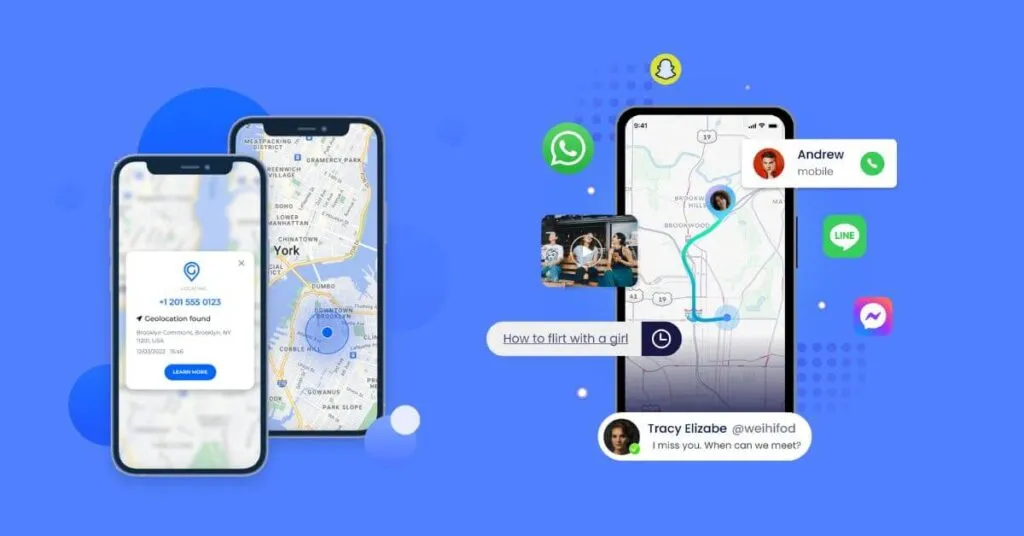How to Track Any Phone or Tablet Secretly – Tracking phones and tablets is crucial for safety and security, enabling quick location of lost or stolen devices and aiding in emergency situations. However, it’s vital to balance this utility with strict adherence to privacy laws and ethical standards, ensuring that surveillance does not infringe on individual rights or become invasive. This practice must be exercised responsibly, with a clear understanding of legal boundaries and ethical implications to protect personal freedoms and maintain trust.
Table of Contents
Understanding the Legalities
Understanding the legalities of tracking phones and tablets is crucial in today’s tech-driven world. Privacy laws governing such tracking vary by jurisdiction, but they generally emphasize the importance of consent. Tracking an adult’s device without their explicit permission can lead to legal issues due to privacy violations. For parental control, there are special considerations. Parents or guardians often have legal leeway to monitor their minor children’s devices for safety reasons. However, this too can have limits and varies by region, underscoring the need to be informed about specific local laws.
Use Cases for Legal Tracking
Legal tracking has several practical use cases, each tailored to meet specific needs while adhering to legal standards:
1. Parental Control: This use case involves parents monitoring their children’s whereabouts for safety and security reasons. By using legal tracking tools, parents can ensure their children are safe, especially when they are away from home. This includes tracking the location of children during school hours, on trips, or when they are at a friend’s house. It’s crucial, however, that this monitoring is done with respect for the child’s privacy and age-appropriate boundaries.
2. Employer Monitoring of Company-Owned Devices: Employers often use tracking to monitor the use of company-owned devices such as laptops, smartphones, and vehicles. This is done to ensure that these resources are being used efficiently and for their intended business purposes. It can help in optimizing productivity, managing field operations, and safeguarding valuable company assets. Employers must balance this with respecting employee privacy rights and adhering to relevant labor laws.
3. Personal Use for Device Security: Individuals often use tracking technology to keep tabs on their personal electronic devices like smartphones, tablets, and laptops. This is primarily to prevent loss or theft and to recover devices if they are misplaced or stolen. Such tracking can be invaluable in quickly locating and securing personal devices, potentially preventing misuse of sensitive personal data stored on these devices.
In each case, it is imperative that tracking is conducted legally and ethically, with a clear understanding of privacy laws and regulations.
Choosing the Right Tracking Software
Choosing the right phone tracking software requires considering several key factors, such as features, compatibility, privacy concerns, and legal considerations. Here’s a guideline to help you make an informed decision, including a mention of SpyX phone tracking software:
1. Features: Different tracking software offers various features. Common features include GPS tracking, access to call logs, text messages, emails, and social media activity. Some, like SpyX, might offer unique features such as stealth mode, which allows the app to run undetected on the target device.
2. Compatibility: Ensure the software is compatible with the target device’s operating system (iOS, Android, etc.). Some tracking apps, including SpyX, are designed to work on multiple platforms, but always check for the latest compatibility information.
3. User Experience: Look for software with an intuitive and user-friendly interface. Easy navigation and clear reporting are essential for effective tracking. Reviews and user feedback can be helpful in assessing this aspect.
4. Privacy Concerns: Understand the privacy implications of using tracking software. Ethical use typically requires consent from the person being tracked, especially in personal relationships. SpyX and similar software should be used responsibly and ethically.
5. Legal Considerations: Familiarize yourself with local laws regarding privacy and surveillance. Unauthorized tracking can lead to legal issues. It’s crucial to use software like SpyX within legal boundaries, such as for parental control or employee monitoring with consent.
6. Cost and Subscription Plans: Compare the costs and subscription plans of different software. Some might offer a free trial period, like SpyX, allowing you to test features before committing.
7. Customer Support and Reliability: Reliable customer support is vital. Ensure the company offers robust support in case of issues. Also, consider the software’s reliability and uptime.
8. Security: The software should have strong security measures to protect the data it collects. This is crucial to prevent misuse of sensitive information.
9. Reviews and Ratings: Look for reviews and ratings from other users. These can provide real-world insights into how the software performs and its reliability.
10. Updates and Maintenance: Choose software that is regularly updated to ensure compatibility with the latest devices and operating systems.
When considering phone tracking software like SpyX, it’s important to balance the feature set with ethical, legal, and privacy considerations. Always use such software responsibly and in compliance with local laws and regulations.
Dealing with Legal Issues
When you suspect illegal tracking, the first step is to gather evidence, such as screenshots or records of suspicious activities. Then, report the issue to local law enforcement and consider consulting a lawyer specializing in privacy laws. For unauthorized tracking or privacy breaches, file a complaint with appropriate regulatory bodies, and again, seek legal counsel to explore options like civil lawsuits for compensation or injunctions to stop the tracking. It’s crucial to act quickly and preserve all evidence for potential legal proceedings.
In conclusion, ethical and legal considerations are paramount when tracking phones and tablets. Respecting privacy laws and prioritizing user consent ensures that tracking is conducted responsibly. Transparency in tracking activities is crucial to maintain trust and uphold moral standards. It’s imperative that individuals and organizations alike prioritize these values to ensure respectful and lawful use of tracking technology.


